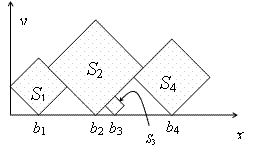- 详解mybatis的一二级缓存以及缓存失效原因
仰望天花板
缓存数据库mybatisjavamysql
数据库的大部分场景下是从磁盘读取,如果数据从内存进行读取,速度较比磁盘要快得多。但因为内存的容量有限,所以一般只会把使用和查询较多的数据缓存起来,以便快速反应,其他使用率不太多的继续存放在磁盘。mybatis分为一级缓存和二级缓存1.一级缓存一级缓存存放在SqlSqeeion上,默认开启1.1pojo@DatapublicclassRole{privateLongid;privateStringr
- WORD批量转换器MultiDoc Converter
uolian
工作word
WORD批量转换器MultiDocConverterhttps://www.52pojie.cn/thread-1318745-1-1.html可批量将doc、docx等文件格式转成doc、docx、pdf、rtf、txt、html、epub等格式。安装包下载地址:https://wws.lanzouj.com/irvVbiz0pkd最终下载文件打包地址(未作成单文件,不确定是否可以直接使用):h
- MyBatis系统学习(一)——项目结构及其含义
OEC小胖胖
MyBatismybatis学习web后端
1.MyBatis简介MyBatis是一款优秀的持久层框架,它通过SQL映射的方式实现Java对数据库操作的映射,既保留了SQL语句的灵活性,也简化了代码的编写。在一个MyBatis项目中,核心部分主要有:配置文件(mybatis-config.xml)映射文件(Mapper.xml)实体类(Entity/POJO)接口类(Mapper接口)MyBatis会话工厂(SqlSessionFactor
- SpringBoot项目
俺叫啥好嘞
spring系列springspringboot
SpringBoot项目大概分为四层:(1)DAO层:包括XxxMapper.java(数据库访问接口类),XxxMapper.xml(数据库链接实现);(这个命名,有人喜欢用Dao命名,有人喜欢用Mapper,看个人习惯了吧)(2)Bean层:也叫model层,模型层,entity层,实体层,就是数据库表的映射实体类,存放POJO对象;(3)Service层:也叫服务层,业务层,包括XxxSer
- 数据结构OJ作业——队列
nnbs
数据结构数据结构poj队列
POJ3984:http://poj.org/problem?id=3984迷宫,输出最短路径,bfs#include#include#include#includeusingnamespacestd;intmaze[5][5];pairpath[5][5];queue>q;intdx[]={1,-1,0,0};intdy[]={0,0,1,-1};voidbfs(intx,inty){q.pus
- c语言练习:POJ 1005 我想我需要一艘船屋(I Think I Need a Houseboat)
七月初七淮水竹亭~
C语言入门c语言
题目相关信息描述弗雷德·马珀(FredMapper)正在考虑在路易斯安那州购买一些土地来建造他的房子。在调查这片土地的过程中,他了解到,由于密西西比河造成的侵蚀,路易斯安那州实际上每年都在缩小50平方英里。由于弗雷德希望一辈子都住在这所房子里,他需要知道他的土地是否会因侵蚀而消失。在做了更多的研究之后,弗雷德了解到正在失去的土地形成了一个半圆形。这个半圆是以(0,0)为中心的圆的一部分,将圆平分的
- java开发中pojo、model和entity的区别及DTO与VO
leighy
javaspringbootmvc
一、pojo(PlainOrdinaryJavaObject无规则简单Java对象)简单java对象简单的javabean的对象,对应数据库某一张表,表的字段与pojo类的属性都要一一对应?(查阅发现没有具体对pojo描述,有的说是作为业务协作类不需要一一对应)但在实际开发中较少以pojo来对包命名。二、entity(实体类)数据表对应到实体类的映射则类属性与数据库表字段一一对应在实际开发中较多以
- SpringData JPA之Respository接口的使用
OVA_Won
SpringDatamysqljavaspring
SpringDataJPA之Respository接口的使用Respository:最顶层的接口也是标志接口,目的是为了统一所有Repository的类型,且能让组件扫描的时候自动识别。准备工作导入JAR包:别忘了导入Junit测试包,否则后面没法单元测试编写Spring和数据库配置文件applicationContext.xml文件com.OVA.pojojdbc.propertiesjdbc.
- POJ 1062 : 昂贵的聘礼 - 最短路Dijkstra+枚举(难)
bookybooky
图论最短路Dijsktrapojzoj图论
dijkstra处理权值非负情形,最近才开始看最短路。题目大意:(中文题容易理解)大致就是说,最终要得到酋长的许诺,每件物品可能有其他物品(1件)能让此物品价格优惠,你可通过交易获得物品从而以最少金钱达到酋长许诺。交易受到“等级限制”。其中的等级限制处理需要一定的技巧,细节一定要处理好!输入:(单Case输入)第一行两个整数M,N(1>30)-1足够,邻接矩阵用int也足够,并不像DISCUSS中
- 【Mybatis】Web中的数据库操作
科马
java数据库mybatisservletsql
Mybatis工作机制1.加载配置文件:2.创建SqlSessionFactory:3.获取SqlSession:4.获取Mapper接口:5.执行SQL语句:6.SQL语句解析和执行:7.结果映射:8.事务管理:9.关闭SqlSession:10.返回结果:与JDBC对比三个显著特点代码示例1.配置MyBatis2.创建数据库表3.创建POJO类4.编写Mapper接口5.编写SQL映射文件6.
- spring揭秘-概念以BeanFactory介绍
liangxifeng833
本质:Spring框架为POJO提供的各种服务共同组成了Spring的生命之树Paste_Image.pngspring框架为基础,有很多家庭成员,比如(SpringWebFlow,SpringWebServices,SpringSecurity,SpringBatch等等),这些家族成员全部以ApacheLisenceVersion2.0协议发布,共同组成了SpringProjects组合,因为
- SpringBoot项目中使用SpringData-JPA持久化数据
火星刻苦的杏仁
springbootjavamybatis
目录一、什么是JPA二、SpringData-JPA与MybatisPuls的区别三、项目中使用JPAJPA常用注解JPA进阶使用技巧一、什么是JPAJPA是JavaPersistenceAPI的简称,中文名Java持久层API,其设计目标主要是为了简化现有的持久化开发工作和整合ORM技术。简单地说,JPA就是为POJO(PlainOrdinaryJavaObject)提供持久化的标准规范,即将J
- 算法入门篇(八) 之 查找算法
战族狼魂
算法哈希算法
目录一、哈希表哈希函数哈希函数的应用常见的哈希函数线性探测、二次探测、链地址1.线性探测(LinearProbing)2.二次探测(QuadraticProbing)3.链地址法(Chaining)4.总结POJ3349、POJ1840、POJ2002POJ3349-AncientCipherPOJ1840-MaximumNumberPOJ2002-TournamentScheduling二、字符
- Spring AI
java_heartLake
人工智能人工智能springjava
本文介绍Spring的一级项目SpringAI简介:SpringAI是一个用于AI工程的应用程序框架。其目标是将Spring生态系统的设计原则(如可移植性和模块化设计)应用于AI领域,并推动将POJO(PlainOldJavaObjects,简单老式Java对象)作为应用程序的构建块引入到AI领域。主要特性:支持跨AI提供商的便携式API,用于聊天、文本到图像和嵌入模型。同时支持同步和流API选项
- 【iOS安全】iOS安装Alook浏览器
Jouzzy
iOS安全iOS开发ios浏览器
下载Alook的ipa下载地址参考:https://www.52pojie.cn/thread-1725470-1-1.html其中出现的下载链接:https://wwes.lanzouf.com/iyGQ00icergd下载ipa后使用爱思助手安装
- MyBatis注解开发详解
hoypte
mybatis
MyBatis注解开发详解一、前言MyBatis是一个优秀的持久层框架,它支持定制化SQL、存储过程以及高级映射。MyBatis免除了几乎所有的JDBC代码和手动设置参数以及获取结果集。MyBatis可以使用简单的XML或注解来配置和映射原始类型、接口和JavaPOJO(PlainOldJavaObjects,普通的Java对象)为数据库中的记录。在MyBatis中,注解提供了一种更加简洁和直观的
- @Import注解作用
y我见青山多妩媚
java开发语言
@Import注解作用理解springboot自动装配时,发现@SpringBootApplication注解下的@EnableAutoConfiguration注解头上有一个@Import注解。关于这个注解的作用,上网查找后发现理解的不是很明白,于是写了下面的Demo去理解。两个pojo类:publicclassPerson{}publicclassStudent{}测试类@Configurat
- 【spring boot结合rabbit mq 到点执行,可精确到秒】
ljh_learn_from_base
javaspringbootspringbootjava后端java-rabbitmq
【springboot结合rabbitmq到点执行,可精确到秒】创建队列枚举创建自定义的队列消息pojo创建队列和延迟队列发送mq消息接收mq消息DateTimeUtil测试注意点创建队列枚举publicenumQueueEnum{/***各种异步消息频道*/TEST(1,"test","队列频道"),DELAY_TEST(2,"delay_test","延迟延迟频道"),;privateInte
- Eclipse中Run As On Server和Run As Java Application
CAE虚拟与现实
JavaIDE开发环境javaeclipseide
一、名词释义runjavaapplication(作为Java应用程序运行)是运行javamain方法。runonserver是启动一个web应用服务器。二、两者的区别Eclipse中可以创建javaproject也可以创建javawebpoject。javaproject是可以直接在命令行运行,或者直接在Eclipse中运行此时运行是jvm直接调用了main方法。Eclipse中创建的javaw
- 不同编程网站应当注意的点
见合8
比赛总结c++c语言
文章目录引入:洛谷:POJ:C语言:C++:CF:个人建议:补充:引入:小伙伴们有没有遇到过这种情况:到一个新的网站去编程,思路、算法完全正确,提交上去却是WrongAnswer,RuntimeError,ComplieError,TimeLimitExceed。这里,我总结了以下几个网站的注意点:洛谷:link提交时右上角有一个选项为O2优化。这并不可以随便选。可能有些暴力程序开了O2就过了,但
- 阿里java开发手册泰山版_总结
林坰
Javajava数据库mysql
编程规约常量定义不允许任何预先未定义的常量出现在代码中。不要使用一个常量类维护所有的常量,要按常量功能进行归类,分开维护。OOP规约所有的POJO类属性必须使用包装数据类型。RPC方法的返回值和参数必须使用包装数据类型。POJO类是最简单最普通的JAVA对象,内在含义是有一些private的参数作为对象的属性,然后针对每一个参数定义get和set方法访问的接口。【没有从任何类继承、也没有实现任何接
- 【转载】ACM入门 .
dongfan1861
人工智能phpc/c++
初期:一.基本算法:(1)枚举.(poj1753,poj2965)(2)贪心(poj1328,poj2109,poj2586)(3)递归和分治法.(4)递推.(5)构造法.(poj3295)(6)模拟法.(poj1068,poj2632,poj1573,poj2993,poj2996)二.图算法:(1)图的深度优先遍历和广度优先遍历.(2)最短路径算法(dijkstra,bellman-ford,
- 如何下载52pojie、CSDN、简书、Myitmx、博客园的文章?(最新教程)
星梦客
问题记录程序人生
使用的油猴插件,具体怎么安装问一下度娘。我用的火狐,点点点就行了,省事先安装油猴拓展,启用一下Tampermonkey–下载Firefox扩展(zh-CN)在安装插件SaveToPDF脚本安装后,浏览CSDN文章时,博主信息下方会出现“收藏”按钮,52pojie页面,"收藏"按钮在发贴回复旁边,简书页面,左侧悬浮按钮下方,Myitmx页面,顶部最右侧,博客园页面,顶部管理菜单旁边点击收藏会弹出打印
- SpringBoot之基本概念
Daylight629
SpringBootjavaspringspringbootmaventomcat
SpringBoot概念一、什么是SpringSpring是一个开源框架,2003年兴起的一个轻量级的Java开发框架,作者:RodJohnson。Spring是为了解决企业级应用开发的复杂性而创建的,简化开发。可以看我之前的文章关于spring的介绍与使用二、Spring是如何简化Java开发的为了降低Java开发的复杂性,Spring采用了以下4种关键策略:1、基于POJO的轻量级和最小侵入性
- 使用IDEA构建微服务Maven聚合工程保姆级教程
程序喵锅
经验分享intellij-idea微服务maven经验分享学习
本次喵子给大家分享一个通用的聚合工程搭建教程,细致入微、充满人文关怀的保姆级教程,基本上搭建一次后续即可作为通用模版,应用到其它项目里。一、简单了解微服务二、Maven构建聚合工程1.环境说明2.开始构建2.1.创建空的父工程2.2.创建common子工程2.3.创建pojo子工程2.4.创建mapper子工程2.5.创建service子工程2.6.创建apis子工程2.7.工程安装三、总结一、简
- java中实体pojo对于布尔类型属性命名尽量别以is开头,否则 fastjson可能会导致属性读取不到
阿文弟
java开发语言
假如我们有一个场景,就是需要将一个对象以字符串的形式,也就是jsonString存到一个地方,比如mysql,或者redis的String结构。现在有一个实体,我们自己创建的,叫做CusPojo.java有两个属性是布尔类型的,一个属性是有is开头,一个是没有is开头的,我们就可以做个对比。现在我导入fastjson依赖,创建一个CusPojo对象,然后序列化为jsonString,我们打印结果如
- springboot整合RabbitMQ
水宝的滚动歌词
RabbitMQspringbootspringbootrabbitmq
1.Spring-AMQP概念什么是Spring-AMQPSpring框架的AMQP消息解决方案,提供模板化的发送和接收消息的抽象层,提供基于消息驱动的POJO的消息监听等提供不依赖于任何特定的AMQP代理实现或客户端库通用的抽象,最终用户代码将很容易实现更易替换、添加和删除AMQP,因为它可以只针对抽象层来开发总之就是提高我们的框架整合消息队列的效率,springboot为更方便开发Rabbit
- Spring Boot 笔记 016 创建接口_删除文章分类
机器人迈克猫
SpringBootspringboot笔记后端
1.1.1Controllerpackagecom.geji.controller;importcom.geji.pojo.Category;importcom.geji.pojo.Result;importcom.geji.service.CategoryService;importorg.springframework.beans.factory.annotation.Autowired;im
- SpringMVC 的参数绑定之list集合、Map
lvpflv
SpringMVClistmvcspring
标签中name属性的值就是pojo类的属性名参数绑定4list[对象]教师编号:教师姓名:map教师编号:教师姓名:
- VO、DTO、DO、BO、PO
知行合一。。。
项目--架构mybatis
提示:文章写完后,目录可以自动生成,如何生成可参考右边的帮助文档文章目录VO、DTO、DO、BO1.概念阿里Java开发手册分层领域模型:2.VO和DTO使用场景以下是一个使用VO和DTO的典型案例:3.BO和DTO的区别案例VO、DTO、DO、BOPOJO的定义是无规则简单的对象,在日常的代码分层中pojo会被分为VO、BO、PO、DTO。通过各层POJO的使用,有助于提高代码的可读性和可维护性
- 开发者关心的那些事
圣子足道
ios游戏编程apple支付
我要在app里添加IAP,必须要注册自己的产品标识符(product identifiers)。产品标识符是什么?
产品标识符(Product Identifiers)是一串字符串,它用来识别你在应用内贩卖的每件商品。App Store用产品标识符来检索产品信息,标识符只能包含大小写字母(A-Z)、数字(0-9)、下划线(-)、以及圆点(.)。你可以任意排列这些元素,但我们建议你创建标识符时使用
- 负载均衡器技术Nginx和F5的优缺点对比
bijian1013
nginxF5
对于数据流量过大的网络中,往往单一设备无法承担,需要多台设备进行数据分流,而负载均衡器就是用来将数据分流到多台设备的一个转发器。
目前有许多不同的负载均衡技术用以满足不同的应用需求,如软/硬件负载均衡、本地/全局负载均衡、更高
- LeetCode[Math] - #9 Palindrome Number
Cwind
javaAlgorithm题解LeetCodeMath
原题链接:#9 Palindrome Number
要求:
判断一个整数是否是回文数,不要使用额外的存储空间
难度:简单
分析:
题目限制不允许使用额外的存储空间应指不允许使用O(n)的内存空间,O(1)的内存用于存储中间结果是可以接受的。于是考虑将该整型数反转,然后与原数字进行比较。
注:没有看到有关负数是否可以是回文数的明确结论,例如
- 画图板的基本实现
15700786134
画图板
要实现画图板的基本功能,除了在qq登陆界面中用到的组件和方法外,还需要添加鼠标监听器,和接口实现。
首先,需要显示一个JFrame界面:
public class DrameFrame extends JFrame { //显示
- linux的ps命令
被触发
linux
Linux中的ps命令是Process Status的缩写。ps命令用来列出系统中当前运行的那些进程。ps命令列出的是当前那些进程的快照,就是执行ps命令的那个时刻的那些进程,如果想要动态的显示进程信息,就可以使用top命令。
要对进程进行监测和控制,首先必须要了解当前进程的情况,也就是需要查看当前进程,而 ps 命令就是最基本同时也是非常强大的进程查看命令。使用该命令可以确定有哪些进程正在运行
- Android 音乐播放器 下一曲 连续跳几首歌
肆无忌惮_
android
最近在写安卓音乐播放器的时候遇到个问题。在MediaPlayer播放结束时会回调
player.setOnCompletionListener(new OnCompletionListener() {
@Override
public void onCompletion(MediaPlayer mp) {
mp.reset();
Log.i("H
- java导出txt文件的例子
知了ing
javaservlet
代码很简单就一个servlet,如下:
package com.eastcom.servlet;
import java.io.BufferedOutputStream;
import java.io.IOException;
import java.net.URLEncoder;
import java.sql.Connection;
import java.sql.Resu
- Scala stack试玩, 提高第三方依赖下载速度
矮蛋蛋
scalasbt
原文地址:
http://segmentfault.com/a/1190000002894524
sbt下载速度实在是惨不忍睹, 需要做些配置优化
下载typesafe离线包, 保存为ivy本地库
wget http://downloads.typesafe.com/typesafe-activator/1.3.4/typesafe-activator-1.3.4.zip
解压r
- phantomjs安装(linux,附带环境变量设置) ,以及casperjs安装。
alleni123
linuxspider
1. 首先从官网
http://phantomjs.org/下载phantomjs压缩包,解压缩到/root/phantomjs文件夹。
2. 安装依赖
sudo yum install fontconfig freetype libfreetype.so.6 libfontconfig.so.1 libstdc++.so.6
3. 配置环境变量
vi /etc/profil
- JAVA IO FileInputStream和FileOutputStream,字节流的打包输出
百合不是茶
java核心思想JAVA IO操作字节流
在程序设计语言中,数据的保存是基本,如果某程序语言不能保存数据那么该语言是不可能存在的,JAVA是当今最流行的面向对象设计语言之一,在保存数据中也有自己独特的一面,字节流和字符流
1,字节流是由字节构成的,字符流是由字符构成的 字节流和字符流都是继承的InputStream和OutPutStream ,java中两种最基本的就是字节流和字符流
类 FileInputStream
- Spring基础实例(依赖注入和控制反转)
bijian1013
spring
前提条件:在http://www.springsource.org/download网站上下载Spring框架,并将spring.jar、log4j-1.2.15.jar、commons-logging.jar加载至工程1.武器接口
package com.bijian.spring.base3;
public interface Weapon {
void kil
- HR看重的十大技能
bijian1013
提升能力HR成长
一个人掌握何种技能取决于他的兴趣、能力和聪明程度,也取决于他所能支配的资源以及制定的事业目标,拥有过硬技能的人有更多的工作机会。但是,由于经济发展前景不确定,掌握对你的事业有所帮助的技能显得尤为重要。以下是最受雇主欢迎的十种技能。 一、解决问题的能力 每天,我们都要在生活和工作中解决一些综合性的问题。那些能够发现问题、解决问题并迅速作出有效决
- 【Thrift一】Thrift编译安装
bit1129
thrift
什么是Thrift
The Apache Thrift software framework, for scalable cross-language services development, combines a software stack with a code generation engine to build services that work efficiently and s
- 【Avro三】Hadoop MapReduce读写Avro文件
bit1129
mapreduce
Avro是Doug Cutting(此人绝对是神一般的存在)牵头开发的。 开发之初就是围绕着完善Hadoop生态系统的数据处理而开展的(使用Avro作为Hadoop MapReduce需要处理数据序列化和反序列化的场景),因此Hadoop MapReduce集成Avro也就是自然而然的事情。
这个例子是一个简单的Hadoop MapReduce读取Avro格式的源文件进行计数统计,然后将计算结果
- nginx定制500,502,503,504页面
ronin47
nginx 错误显示
server {
listen 80;
error_page 500/500.html;
error_page 502/502.html;
error_page 503/503.html;
error_page 504/504.html;
location /test {return502;}}
配置很简单,和配
- java-1.二叉查找树转为双向链表
bylijinnan
二叉查找树
import java.util.ArrayList;
import java.util.List;
public class BSTreeToLinkedList {
/*
把二元查找树转变成排序的双向链表
题目:
输入一棵二元查找树,将该二元查找树转换成一个排序的双向链表。
要求不能创建任何新的结点,只调整指针的指向。
10
/ \
6 14
/ \
- Netty源码学习-HTTP-tunnel
bylijinnan
javanetty
Netty关于HTTP tunnel的说明:
http://docs.jboss.org/netty/3.2/api/org/jboss/netty/channel/socket/http/package-summary.html#package_description
这个说明有点太简略了
一个完整的例子在这里:
https://github.com/bylijinnan
- JSONUtil.serialize(map)和JSON.toJSONString(map)的区别
coder_xpf
jqueryjsonmapval()
JSONUtil.serialize(map)和JSON.toJSONString(map)的区别
数据库查询出来的map有一个字段为空
通过System.out.println()输出 JSONUtil.serialize(map): {"one":"1","two":"nul
- Hibernate缓存总结
cuishikuan
开源sshjavawebhibernate缓存三大框架
一、为什么要用Hibernate缓存?
Hibernate是一个持久层框架,经常访问物理数据库。
为了降低应用程序对物理数据源访问的频次,从而提高应用程序的运行性能。
缓存内的数据是对物理数据源中的数据的复制,应用程序在运行时从缓存读写数据,在特定的时刻或事件会同步缓存和物理数据源的数据。
二、Hibernate缓存原理是怎样的?
Hibernate缓存包括两大类:Hib
- CentOs6
dalan_123
centos
首先su - 切换到root下面1、首先要先安装GCC GCC-C++ Openssl等以来模块:yum -y install make gcc gcc-c++ kernel-devel m4 ncurses-devel openssl-devel2、再安装ncurses模块yum -y install ncurses-develyum install ncurses-devel3、下载Erang
- 10款用 jquery 实现滚动条至页面底端自动加载数据效果
dcj3sjt126com
JavaScript
无限滚动自动翻页可以说是web2.0时代的一项堪称伟大的技术,它让我们在浏览页面的时候只需要把滚动条拉到网页底部就能自动显示下一页的结果,改变了一直以来只能通过点击下一页来翻页这种常规做法。
无限滚动自动翻页技术的鼻祖是微博的先驱:推特(twitter),后来必应图片搜索、谷歌图片搜索、google reader、箱包批发网等纷纷抄袭了这一项技术,于是靠滚动浏览器滚动条
- ImageButton去边框&Button或者ImageButton的背景透明
dcj3sjt126com
imagebutton
在ImageButton中载入图片后,很多人会觉得有图片周围的白边会影响到美观,其实解决这个问题有两种方法
一种方法是将ImageButton的背景改为所需要的图片。如:android:background="@drawable/XXX"
第二种方法就是将ImageButton背景改为透明,这个方法更常用
在XML里;
<ImageBut
- JSP之c:foreach
eksliang
jspforearch
原文出自:http://www.cnblogs.com/draem0507/archive/2012/09/24/2699745.html
<c:forEach>标签用于通用数据循环,它有以下属性 属 性 描 述 是否必须 缺省值 items 进行循环的项目 否 无 begin 开始条件 否 0 end 结束条件 否 集合中的最后一个项目 step 步长 否 1
- Android实现主动连接蓝牙耳机
gqdy365
android
在Android程序中可以实现自动扫描蓝牙、配对蓝牙、建立数据通道。蓝牙分不同类型,这篇文字只讨论如何与蓝牙耳机连接。
大致可以分三步:
一、扫描蓝牙设备:
1、注册并监听广播:
BluetoothAdapter.ACTION_DISCOVERY_STARTED
BluetoothDevice.ACTION_FOUND
BluetoothAdapter.ACTION_DIS
- android学习轨迹之四:org.json.JSONException: No value for
hyz301
json
org.json.JSONException: No value for items
在JSON解析中会遇到一种错误,很常见的错误
06-21 12:19:08.714 2098-2127/com.jikexueyuan.secret I/System.out﹕ Result:{"status":1,"page":1,&
- 干货分享:从零开始学编程 系列汇总
justjavac
编程
程序员总爱重新发明轮子,于是做了要给轮子汇总。
从零开始写个编译器吧系列 (知乎专栏)
从零开始写一个简单的操作系统 (伯乐在线)
从零开始写JavaScript框架 (图灵社区)
从零开始写jQuery框架 (蓝色理想 )
从零开始nodejs系列文章 (粉丝日志)
从零开始编写网络游戏
- jquery-autocomplete 使用手册
macroli
jqueryAjax脚本
jquery-autocomplete学习
一、用前必备
官方网站:http://bassistance.de/jquery-plugins/jquery-plugin-autocomplete/
当前版本:1.1
需要JQuery版本:1.2.6
二、使用
<script src="./jquery-1.3.2.js" type="text/ja
- PLSQL-Developer或者Navicat等工具连接远程oracle数据库的详细配置以及数据库编码的修改
超声波
oracleplsql
在服务器上将Oracle安装好之后接下来要做的就是通过本地机器来远程连接服务器端的oracle数据库,常用的客户端连接工具就是PLSQL-Developer或者Navicat这些工具了。刚开始也是各种报错,什么TNS:no listener;TNS:lost connection;TNS:target hosts...花了一天的时间终于让PLSQL-Developer和Navicat等这些客户
- 数据仓库数据模型之:极限存储--历史拉链表
superlxw1234
极限存储数据仓库数据模型拉链历史表
在数据仓库的数据模型设计过程中,经常会遇到这样的需求:
1. 数据量比较大; 2. 表中的部分字段会被update,如用户的地址,产品的描述信息,订单的状态等等; 3. 需要查看某一个时间点或者时间段的历史快照信息,比如,查看某一个订单在历史某一个时间点的状态, 比如,查看某一个用户在过去某一段时间内,更新过几次等等; 4. 变化的比例和频率不是很大,比如,总共有10
- 10点睛Spring MVC4.1-全局异常处理
wiselyman
spring mvc
10.1 全局异常处理
使用@ControllerAdvice注解来实现全局异常处理;
使用@ControllerAdvice的属性缩小处理范围
10.2 演示
演示控制器
package com.wisely.web;
import org.springframework.stereotype.Controller;
import org.spring
